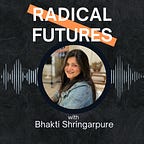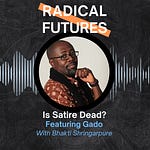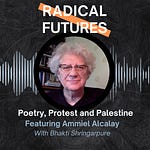“I spent the first two months of the genocide in Gaza,” writer, professor and activist Haidar Eid explains. “In Gaza itself, I was displaced three times.” After being evacuated in December 2023, Eid went from Gaza to South Africa, which became his “fourth displacement.” He is now based on Johannesburg and has been closely scrutinizing the 20-point Gaza ceasefire plan strong-armed by Trump and Netanyahu.
Eid’s scrutiny revolves around whether this plan meets even the bare minimum of fundamental rights for people in Gaza, and for Palestinians as a whole. The plan, he says, is only focused on the first phase of hostage exchange and is vague about the next two phases, and deliberately exclude any Palestinian representation. Another bare minimum would be to call what has been going on a “genocide.” Despite a global consensus on the term from weighty international bodies, Eid is outraged that this ceasefire plan is premised on genocide denial. He wonders “whether this will really put an end to the ongoing genocide, or the genocide itself will take a different form.”
Born in Nuseirat refugee camp, and having lived in Gaza all his life, Eid embodies the struggles, and the resilience and fiery resistance of a generation of Gazans, all of whom have endured Israeli occupation and apartheid, including the series of brutal sieges. He reminds us that Ilan Pappe called Israel’s pre-October 7th policy in Gaza “incremental genocide,” and that Richard Falk, former UN Special Rapporteur, similarly called it a “prelude to genocide” several years ago. This time around, however, he says that it has been exponentially more violent and more genocidal.
“Gaza is the largest refugee reservoir,” Eid explains. He walks us through the history of how Israel created the Gaza strip in 1948, when hundreds of thousands of Palestinians were forcibly displaced to the South, and then could not enter Egypt. Gaza has become “the cradle of Palestinian nationalism and the Palestinian revolution,” he says. From the late sixties onwards, “all Palestinian uprisings, the emergence of the Palestinian revolution, started in the Gaza Strip itself.
“So there it is: Israel wanted to punish the Palestinian people by punishing Gaza.”
In fact, Eid was in Gaza when the “deadly hermetic siege” of 2006 was imposed and was meant “to punish Palestinians for voting against the two-state solution, for voting for resistance, or rather, for voting against the Oslo Accords.”
Even as the Israeli onslaughts continued unabated over the years, it was 17 years later that October 7th presented Israel with the perfect opportunity to take its historically punitive approach towards Gaza to horrific new levels.
The 1993 Oslo Accords are a point of strife for Eid. We turn to his provocative short book Decolonizing the Palestinian Mind, which is an incisive analysis and rebuke of the “racist fiction of a two-state solution” for Palestine. The critique, inspired by Edward Said, argues that the Oslo agreements sowed the problematic seed of statehood but by cutting Palestine into two states. “Palestinian neo-nationalism is about everything that beautifies occupation, endorses normalization and defends the racist two-state solution as the solution to the Palestinian question regardless of the glaring fact that it denies the rights of two-thirds of the Palestinian people, namely refugees and Palestinian citizens of Israel,” writes Eid (31).
Eid is enraged that the Palestinian people have been persuaded to believe that “they could live, coexist rather, with settler colonialism, with apartheid, with ethnic cleansing.” This is impossible because, “first of all, you need to dismantle apartheid, dismantle settler colonialism, dismantle occupation, and after that you can start negotiating about coexistence.”
For Eid, who is a literature professor, these journeys must begin by immersing in the ideas of great revolutionary thinkers like Amilcar Cabral, Che Guevara, Edward Said, Steve Biko, Ngugi wa Thiong’o, Mahmoud Darwish and Ghassan Kanafani, among others. It is vital to work towards decolonizing Palestinian minds and making them see alternative and radical futures for Palestine.
Eid moves between intellectual and political clarity and frenetic despair. The personal loss, for Eid, has been too tremendous to even grasp: 45 relatives killed, 39 colleagues at Al-Aqsa University, 288 of his students.
“I am part of this culture of sumud - of steadfastness and resistance,” he reminds me. “This is the lesson I have learned from my people.”
Further reading:
Banging on the Walls of the Tank: Dispatches from Gaza by Haidar Eid (Foreword by Richard Falk), Between the Lines Books, 2025 https://btlbooks.com/book/banging-on-the-walls-of-the-tank
Decolonizing the Palestinian Mind (Afterword by Victoria Brittain) by Haidar Eid, Between the Lines Books, 2025 https://btlbooks.com/book/decolonizing-the-palestinian-mind
Hosted by Bhakti Shringarpure.
Radical Futures is produced by Warscapes
Title Music: “Cottonstorm” by Bayern Boom Beat
Subscribe | Follow www.radicalbookscollective.com












